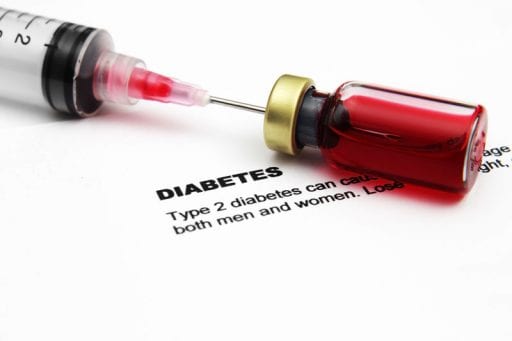Weight loss surgery improves type 2 diabetes immediately after the operation. Diabetic patients who have bariatric surgery often see reductions in blood sugar levels within days of their procedure.
Obesity and Diabetes Risk
 Risk of developing diabetes mellitus, type 2 diabetes, is associated with excess body weight. About 20 percent of obese people develop diabetes.
Risk of developing diabetes mellitus, type 2 diabetes, is associated with excess body weight. About 20 percent of obese people develop diabetes.
Diet, exercise and medication are the traditional treatments for the disease. For severely obese people, diet and exercise have a low rate of success for permanent weight loss.
People with a BMI over 35 have greater success losing large amounts of weight with weight loss surgery than with any other method.
Weight Loss Surgery and Diabetes
Blood sugar begins dropping right after surgery and continues to steadily improve. After surgery, before patients lose the excess body weight, type 2 diabetes improves. Some people are able to stop taking diabetes medications within days of surgery.
Improvements may be more gradual for others. Many patients no longer have diabetes a year after their operation.
Research suggests bariatric surgery changes fat tissue. This alteration improves the body’s resistance to insulin.
All major types of weight loss surgery have been shown to have significant success. Many international health agencies now recommend bariatric surgery as a treatment for type 2 diabetes. Duodenal switch, gastric bypass, sleeve gastrectomy and gastric banding have all be linked to significant improvements or complete resolution of diabetes.
Gastric Bypass and Diabetes Resolution: Roux-en-Y gastric bypass surgery is the most common type of weight loss surgery in the U.S. It is also among the most effective for treating diabetes. The surgery causes rapid weight loss. As many as 90 percent of gastric bypass patients have normal blood sugar a year after their procedure.
Duodenal Switch and Diabetes Resolution: Duodenal switch is the most effective procedure for reducing both weight and diabetes. This surgery is complex. Complications can be serious. Duodenal surgery may be an option for those who have a BMI over 50 and haven’t been able to lose weight in other ways.
Sleeve Gastrectomy and Diabetes Resolution: Gastric sleeve is nearly as effective at weight reduction as gastric bypass. About 60 percent of those who have this operation have no signs of diabetes a year after surgery. Sleeve gastrectomy has fewer complications than gastric bypass.
Lap Band Surgery and Diabetes Resolution: Gastric banding results in a slower rate of weight loss. Forty-five to 60 percent of people who have this procedure see a resolution to diabetes. Lap band surgery has a slower rate of weight loss compared with other procedures.
Balancing the Benefits
Diabetes carries serious risks of dying from heart failure. Type 2 diabetes complications increase the longer a patient suffers from the disease. Resolution of diabetes reduces chances of developing blindness and kidney disease.
Bariatric surgery also carries risk. Compared to the long-term effects of diabetes, however, weight loss surgery risks are small while the benefits are great.
To learn more about weight loss surgery and diabetes, contact us or attend one of our free informational seminars.



